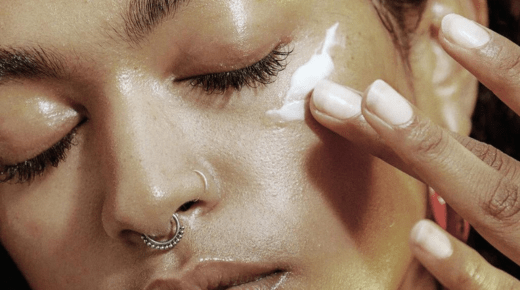Best Cream for Skin Allergy – Finding Relief and Comfort
1. Understanding Skin Allergies
Skin allergies occur when the skin reacts to allergens or irritants, causing redness, itching, and inflammation. Common triggers include certain foods, medications, plants, and chemicals. Understanding the cause of your skin allergy is crucial for finding the most effective treatment.
2. Common Symptoms of Skin Allergies
Symptoms of skin allergies can vary but often include itching, redness, swelling, hives, and rash. In severe cases, the skin may blister or peel. Identifying these symptoms early can help in seeking timely treatment and preventing further complications.
3. Importance of Choosing the Right Cream
Choosing the right cream for skin allergies is essential for effective relief. The right product can soothe symptoms, reduce inflammation, and promote healing. It’s important to select a cream that matches your specific condition and skin type for the best results.
4. Over-the-Counter Antihistamine Creams
Antihistamine creams are commonly used to treat allergic reactions on the skin. These creams work by blocking histamines, chemicals in the body that cause allergy symptoms. They are effective for reducing itching and swelling and are available without a prescription.
5. Hydrocortisone Creams for Inflammation
Hydrocortisone creams are a type of corticosteroid that helps reduce inflammation and itching. These creams are effective for treating mild to moderate skin allergies and are available over the counter in low concentrations or by prescription for stronger formulations.
6. Calamine Lotion for Itchy Rashes
Calamine lotion is a popular treatment for itchy skin rashes caused by allergies. It has a cooling effect that helps soothe itching and provides temporary relief. Calamine is particularly effective for treating rashes from poison ivy, oak, or sumac.
7. Moisturizing Creams for Dry, Allergic Skin
Moisturizing creams are essential for maintaining skin hydration and preventing dryness, which can worsen allergy symptoms. Look for creams that contain ingredients like ceramides, glycerin, and hyaluronic acid to help restore the skin’s natural barrier and retain moisture.
8. Natural and Organic Creams
Natural and organic creams are a good option for those with sensitive skin or who prefer to avoid synthetic ingredients. These creams often contain natural anti-inflammatory and soothing ingredients like aloe vera, chamomile, and calendula, providing gentle relief for allergic skin reactions.
9. Fragrance-Free Options for Sensitive Skin
Fragrances can irritate sensitive skin and exacerbate allergy symptoms. Choosing fragrance-free creams can help reduce the risk of irritation and allergic reactions. Look for products labeled “fragrance-free” or “unscented” to ensure they do not contain added fragrances.
10. Prescription-Strength Corticosteroids
For severe skin allergies, prescription-strength corticosteroid creams may be necessary. These potent creams are prescribed by a doctor and are effective in reducing severe inflammation and itching. However, they should be used under medical supervision due to potential side effects.
11. Topical Immunomodulators
Topical immunomodulators, such as tacrolimus and pimecrolimus, are non-steroidal creams used to treat skin allergies and eczema. They work by modifying the immune response in the skin, reducing inflammation and itching. These creams are available by prescription and are suitable for long-term use.
12. Anti-Itch Creams with Pramoxine
Anti-itch creams containing pramoxine provide fast relief from itching and discomfort associated with skin allergies. Pramoxine is a topical anesthetic that numbs the skin, reducing the sensation of itching. These creams are available over the counter and are safe for frequent use.
13. Colloidal Oatmeal Creams for Soothing Relief
Colloidal oatmeal creams are known for their soothing properties and are effective in treating skin allergies. Oatmeal has anti-inflammatory and antioxidant properties that help relieve itching and irritation. These creams are gentle and suitable for all skin types.
14. Creams with Aloe Vera for Cooling Effect
Aloe vera is a natural ingredient with cooling and soothing properties, making it an excellent choice for treating skin allergies. Creams containing aloe vera can help reduce redness, itching, and inflammation, providing immediate relief and promoting healing.
15. Zinc Oxide Creams for Protective Barrier
Zinc oxide creams create a protective barrier on the skin, preventing irritants from causing further damage. These creams are particularly useful for treating diaper rash and other forms of skin irritation. Zinc oxide also has mild anti-inflammatory properties that help soothe allergic reactions.
16. Antibacterial Creams for Infected Skin
Skin allergies can sometimes lead to secondary bacterial infections. Antibacterial creams containing ingredients like neomycin or bacitracin can help treat and prevent infections, promoting faster healing and reducing the risk of complications.
17. Choosing the Right Cream for Children
Children’s skin is more sensitive than adults’, so it’s important to choose gentle, hypoallergenic creams for treating skin allergies in kids. Look for products specifically formulated for children, free from harsh chemicals, fragrances, and dyes, to ensure safety and effectiveness.
18. Avoiding Common Irritants
To prevent skin allergies, avoid common irritants such as harsh soaps, detergents, and certain fabrics. Opt for gentle, hypoallergenic products and wear soft, breathable fabrics like cotton to reduce the risk of skin reactions.
19. Testing Creams on a Small Area First
Before using a new cream on a large area of your skin, test it on a small patch to ensure you do not have an adverse reaction. This is especially important for those with sensitive skin or a history of allergic reactions. Wait 24 hours to see if any irritation occurs.
20. Consulting a Dermatologist
If over-the-counter creams do not provide relief, or if your skin allergy is severe, consult a dermatologist. A specialist can provide a proper diagnosis, recommend the best treatment options, and prescribe stronger medications if necessary.
21. Reading Labels Carefully
Always read the labels of skin care products carefully to check for potential allergens. Ingredients like fragrances, preservatives, and certain plant extracts can trigger allergic reactions. Choose products with simple, clear ingredient lists to minimize the risk of irritation.
22. Home Remedies and Natural Alternatives
In addition to creams, home remedies like cold compresses, oatmeal baths, and coconut oil can provide relief from skin allergies. These natural alternatives can help soothe the skin and reduce inflammation, offering additional options for managing symptoms.
23. The Role of Diet in Skin Health
A healthy diet can support skin health and reduce the severity of allergic reactions. Foods rich in antioxidants, vitamins, and omega-3 fatty acids can help strengthen the skin barrier and reduce inflammation. Staying hydrated is also essential for maintaining healthy skin.
24. Keeping Your Skin Hydrated
Dry skin is more prone to irritation and allergic reactions. Keeping your skin hydrated by using moisturizers regularly and drinking plenty of water can help maintain its health and resilience. Look for creams with hydrating ingredients like hyaluronic acid and glycerin.
25. Conclusion: Finding the Best Cream for Your Skin Allergy
Finding the best cream for your skin allergy involves understanding your specific condition and skin type. With numerous options available, from antihistamine and hydrocortisone creams to natural and organic products, there is a solution for everyone. Always consult a healthcare professional for personalized advice and treatment.

